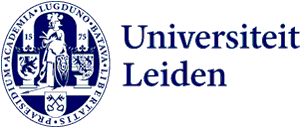
Data analysis of dark web forums in the fight against child sexual abuse
By far the majority of users of child sexual abuse networks (or child porn forums as they are sometimes called) on the dark web do not actively communicate there but download illegal material, therefore committing a criminal offence. But they often stay under the police and judiciary’s radar. PhD candidate Madeleine van der Bruggen conducted a data analysis of these forums and gained a better understanding of their users.
Van der Bruggen, who used to work for the police but is now a researcher for the National Rapporteur on Trafficking in Human Beings and Sexual Violence against Children, analysed the data from six child sexual abuse forums on the dark web. Together, these forums had over 600,000 active users, and the data sets that Van der Bruggen used contained around 760,000 posts.
Crawling the dark web
Van der Bruggen worked with IT experts to gain the data sets. They could, for example, crawl the dark web for data (indexing a website with search engine software). ‘I looked at how active users were, at the number of messages sent and, for instance, at how long people used the forums. But I also looked at the content of some of the messages they sent.’
‘If this work no longer affects you, you’ve become jaded and that’s not good.’
Van der Bruggen acknowledges that her work is emotionally taxing. ‘You sometimes see things you’d rather not have seen or read. If this work no longer affects you, you’ve become jaded and that’s not good. For me, the idea that by doing my research I help prevent child sexual abuse outweighs the mental stress.’

Danger to children
The information collected enabled Van der Bruggen to develop six offender profiles, ranging from ‘managers’ and ‘escalators’ to ‘lurkers’. The latter is by far the largest group. These are people who post very few messages and only join the forum when it has been online for longer, but who do download illegal content. ‘They are not always the ones who are given priority in police investigations but they can be just as much of a danger to children in the real world, which is why it is good to also look at this group.’
Accessibility and prevention
The enormous number of users of child sexual abuse forums are ‘unfortunately no longer the exception’, says Van der Bruggen. In her previous job with the police, she saw the use of forums skyrocket. ‘To begin with, the dark web was a small group of technical people but over the years it has become much more accessible to a very big group.’
‘We see a relatively large number of young people on the forums’
‘You can’t arrest your way out of this’ – as in you can’t solve the problem of online sexual child abuse by making arrests – is a statement Van der Bruggen hears more often from fellow researchers and people from the field. More prevention is needed to stop child abuse, she says. ‘We see a relatively large number of young people on the forums, people who are in a negative spiral and are looking for legal pornography but take a dark turn. I think you can still successfully intervene with this group.’
Lasting cooperation between police and academia
To resolve the problem Van der Bruggen thinks it is essential that police and researchers continue to work together. The police can use research data to inform their criminal investigations and researchers can work on the police’s most pressing research questions. ‘More knowledge about people who search the dark web for images of child sexual abuse will ultimately help improve child protection, and that’s what it’s all about.’
Text: Tim Senden
